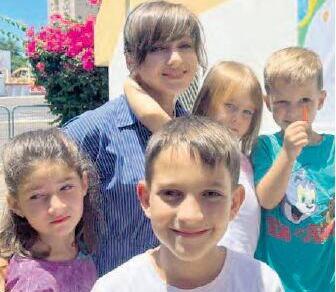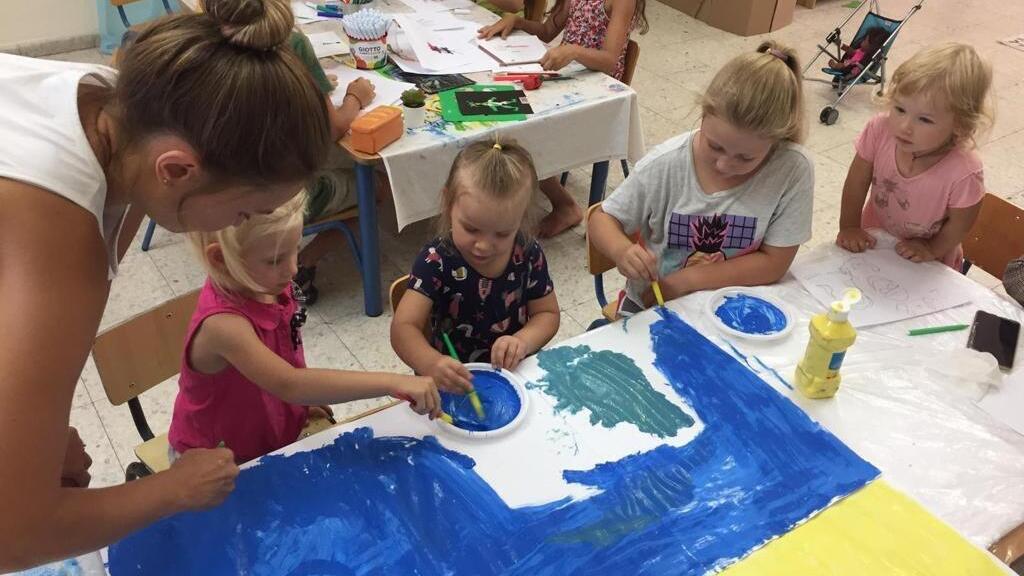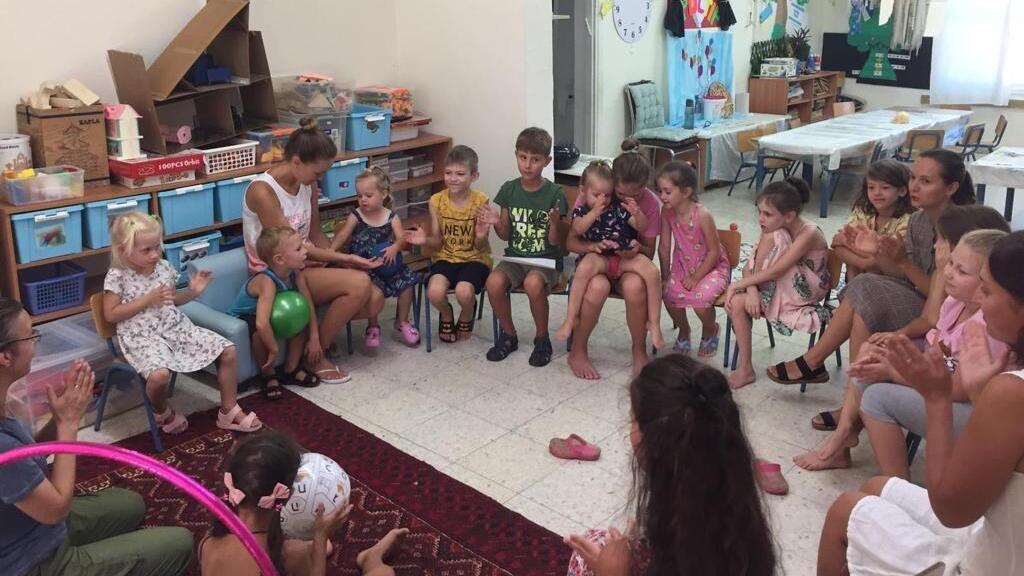Yulia from the central Israeli city of Netanya has been hosting her grandmother, sister, and nieces, who escaped from Ukraine when the war broke out, for a few months.
Yulia's son - nine-year-old Leon - volunteers at a center established by the Jewish Federation of New York to help young refugees. There, he spends most of his time translating to Ukrainian what the local teachers and caretakers are saying.
3 View gallery


Yulia's son Leon at the Federation's summer camp in Netanya
(Photo: The Jewish Federation)
"I know how to explain things really well," he says, adding that "I always wanted to be a journalist in the newspaper like those who talk about the rockets or other news."
Hundreds of thousands of Ukrainian citizens found themselves seeking shelter since the Russian invasion back in February. Close to 20,000 of them came to Israel, where they face great mental, social, and linguistic obstacles - on top of constant worry for their loved ones back in Ukraine.
The UJA Federation decided to contribute to the cause, and invested millions, so the refugees' their time in Israel is spend as worry-free as possible.
3 View gallery


One of the Jewish Federation's centers for Ukrainian refugee children
(Photo: The Jewish Federation of New York (UJA)
As part of this initiative, the UJA Federation sponsors summer camps for refugee children in Israel between the ages 7-18. These camps act as a safe haven for the traumatized kids, where they can finally enjoy a steady routine.
Thanks to a network of hundreds of organizations, the UJA Federation is present in nearly 70 countries around the world, and provides grants of up to 180 million dollars. More so, the Federation raised over 25 million in emergency funding for treatment of Ukrainian refugees.
Yulia's family members are among the 20,000 refugees in Israel who are not eligible to make Aliyah under the Law of Return. Most of them came to Israel on a tourist visa, which lasts for three months and can be extended by a month each time it expires. This status doesn't grant them access to the financial aid, resources, or public education Israel has to offer.
Thanks to the UJA Federation, families living under these circumstances can request financial aid in cash, or funding for medical treatments.
Unfortunately, Yulia's family is one of many who isn't sufficiently looked after in the Jewish state. Many of them thought they were fleeing to their new home, but instead found themselves separated from their families, unemployed, and unable to access education institutions.
The war goes on, yet the Israeli government has not allocated more funds to the cause. Furthermore, the initial readiness of philanthropist to invest is dwindling. And with other agendas grabbing the headlines in Israel, less and less attention is given to this ongoing humanitarian crisis.


